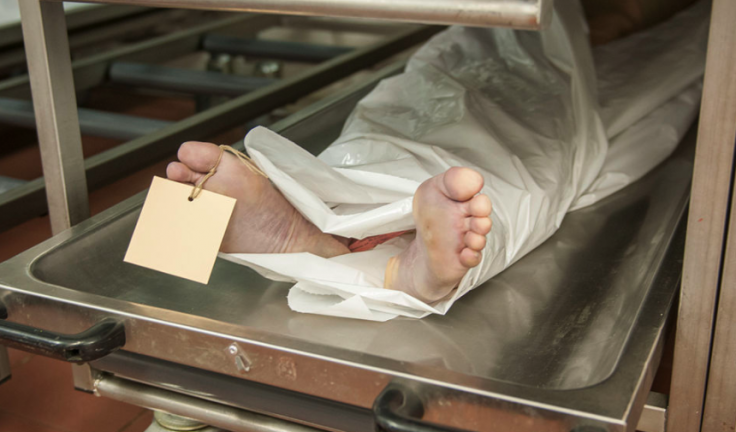Scientists have confirmed that coronavirus does not stop spreading once its host dies after Thailand reported its first fatal case transmitted from a corpse to a medical examiner, raising concerns that those handling coronavirus victims might also be exposed to infection.
Thailand reported its first death from the novel coronavirus after being transmitted from a corpse to a medical examiner, scientists confirmed in a study published on Sunday. "This is the first report on COVID-19 infection and death among medical personnel in a Forensic Medicine unit," said a Journal of Forensic and Legal Medicine study.
Thailand reports first case of coronavirus transmitted from a corpse

"The disinfection procedure used in operation rooms might be applied in pathology/forensic units too," wrote the authors, Won Sriwijitalai of the RVT Medical Center in Bangkok and Viroj Wiwanitkit of China's Hainan Medical University. They added that there is currently no data on the exact number of dead bodies contaminated with COVID-19 as it is not a routine practice to test corpses for COVID-19 in Thailand.
As more than 1.9 million people have been infected with coronavirus around the world, Thailand has reported only 2,579 cases and 40 deaths, even though it was one of the earliest countries to report cases out of China, where the virus originated. The death of the forensic medical examiner was only the second case reported among healthcare professionals in Thailand.
With nearly 1.9 million novel coronavirus cases reported worldwide as of Monday, Thailand has reported only 2,579 cases, although it was one of the earliest countries to report infections outside of China.
Morgue, funeral home workers exposed?
If deceased COVID-19-infected patients are capable of spreading the deadly virus to others, people who come into close contact with corpses may have been exposed to the virus. These include medical examiners, morgue technicians as well as people working in funeral homes.
Although there isn't enough information available on how long the coronavirus can survive in dead bodies if previous virus outbreaks, like Ebola, are any indication, the virus may be able to survive for as long as a week in a corpse. Last month, the head of Thailand's Department of Medical Services had announced that bodies of people who have succumbed to COVID-19 were not contagious to dispel fears amid reports of temples refusing to perform the last rites.
However, some morgue workers around the world have raised concerns overcoming in close contact with COVID-19 victims as countries struggle to keep up with the rising death toll and make hasty arrangements to handle the excessive number of deaths with mass burial graves and temporary morgues.
"Anyone coming into contact with a COVID19 positive body, alive or dead, should be using personal protective equipment to prevent exposure," health policy expert Summer Johnson McGee of the University of New Haven told BuzzFeed News. "Autopsies and subsequent investigations present real risks for coroners to acquire COVID-19," she said.









